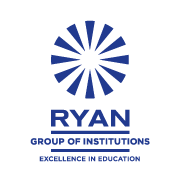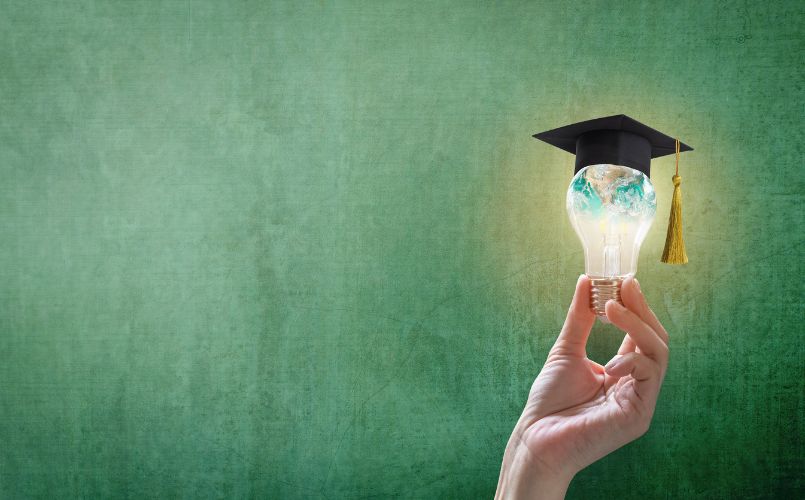The traditional system, based heavily on rote learning, has been a subject of critique for a long. At its core, it seems to have bypassed the human element that education should ideally nurture – creativity, individuality, and active learning. Innovative schools in India are now making progressive strides to adapt to this required change in teaching styles.
Criticisms of Traditional Education
The words of Albert Einstein, provide food for thought. He once said,
Imagination is more important than knowledge.
This statement holds deep relevance when we examine our traditional education system.
A significant emphasis on memorizing and reproducing information during examinations has resulted in unwarranted stress among students, hampering their ability to think creatively. Now, visualize an education system where the prime focus isn’t just on grades, but on enhancing children’s creativity, problem-solving skills, emotional intelligence, and critical thinking. Doesn’t that provide a more dynamic and enriching picture of a child’s educational journey? This vision is precisely what innovative schools aim to implement.
The Shift Towards a Holistic Approach
Our children aren’t homogenous entities. Each one of them has a unique combination of talents, skills, and interests. The traditional ‘one-size-fits-all’ approach to our education system needs a significant shift.
Schools should be transformed into environments of exploration and experimentation, where students feel empowered to ask questions, voice their opinions, and bring their creative ideas to fruition.
Your Role in This Transformation
As we transition to the next sub-topic, let’s reflect on this: “How can we, as parents and educators, help nurture the intelligence and creativity of our children amidst this evolving educational landscape?”
We invite each one of you to ponder over this question and share your perspectives. Your active participation is essential as we embark on this transformative journey together.
Taking the Next Step Together
Remember, we’re here to provide guidance, listen, and encourage open dialogues in our collective endeavour to reshape education. By working together, we can adapt education to suit the unique learning needs of our children, preparing them for an ever-evolving world.
The Changing Face of Education
We find ourselves in the middle of a transformative wave in education, with innovative schools in India embracing new strategies and methodologies that redefine the learning experience for students. The traditional educational mould is being broken as schools are progressively moving towards creating a nurturing environment that promotes creativity, intelligence, and individuality.
Experiential Learning: ‘Learning by Doing’
Experiential learning or ‘learning by doing’ is one of the critical shifts that modern schools are adopting. This methodology encourages students to learn through first-hand experience, fostering a deeper understanding of the subject matter. A class trip to a local business, for example, can make the economics lesson come alive!
Personalized Attention: Celebrating Individuality
Another significant move is towards individualized attention. Children have diverse learning styles and paces. By understanding each student’s unique needs and tailoring teaching methods accordingly, we can foster an environment that celebrates individuality and ensures optimal learning.
Project-Based Learning: Developing Critical Thinking
Project-based learning is another effective method being employed to nurture critical thinking skills. Instead of merely learning facts, students work on projects related to real-world problems. This hands-on approach promotes innovative thinking and problem-solving skills.
Technology Integration: The Digital Revolution
In this digital age, the integration of technology in classrooms has revolutionized the way children learn. From virtual labs, and digital textbooks, to coding classes, technology provides interactive and engaging ways to make learning fun and relevant.
Creative Arts and Extra-Curricular Activities: Fostering Creativity
The increased emphasis on creative arts and extra-curricular activities is another significant shift. Schools are now recognizing the value of music, dance, theatre, and sports in fostering creativity, improving social skills, and boosting overall student well-being.
Stepping into the Future
As we progress let’s ponder over this: “How can we ensure these new methodologies effectively foster creativity and intelligence in our children?” We encourage you to reflect on this question and engage in an open dialogue with us. Your insights are valuable in shaping the education of the future.
The Promise of a Brighter Future
As we dive deeper into India’s educational transformation, the implications for the future become paramount to our discussion. This progressive shift, with its emphasis on creativity, intelligence, and critical thinking development, promises immense potential benefits.
Unleashing Innovative and Adaptable Minds
One of the primary benefits of this approach lies in moulding a more innovative and adaptable workforce. In a rapidly changing world, skills such as problem-solving, adaptability, and innovative thinking are becoming more important than ever. An education system that nurtures these skills equips students to tackle the complexities of the future with confidence.
Fostering Social Development and Quality of Life
Additionally, the holistic approach to education helps in social development and improves the quality of life. Activities that foster creativity and critical thinking also cultivate empathy, communication skills, and emotional intelligence in students. These skills are crucial for establishing strong social bonds and leading a fulfilling life.
The Challenges Ahead
However, as promising as these benefits are, we must also acknowledge the challenges that lie ahead. This shift towards a progressive education system demands substantial investment and meticulous planning.
Investing in Change
Substantial investment is required not just in terms of financial resources but also in teacher training and infrastructure development. Schools must be equipped with the necessary tools and technology to support innovative teaching methods, while teachers need to be trained to adapt to these new pedagogies.
Reaching Underserved Areas
The challenge of implementing these changes in rural and underserved areas cannot be overlooked. Ensuring that every child, irrespective of their geographical location or socio-economic background, has access to this quality of education is a challenge that we must collectively address.
“How can we, as a community, contribute to overcoming these challenges?” Your ideas, suggestions, and active participation are invaluable as we continue this educational journey together.
These progressive strategies are not merely trends, but a vital path towards creating learning spaces that genuinely foster growth and development. The potential benefits of this progressive shift are immense. However, we must also face the challenges head-on, with determination and unity. We invite you to join us, explore our innovative schools, and contribute your unique insights and suggestions. Together, we can shape an education system that truly nurtures the creativity and intelligence of our children. Stay engaged, stay curious, and most importantly, keep contributing to our collective vision of a brighter future for education in India together.




